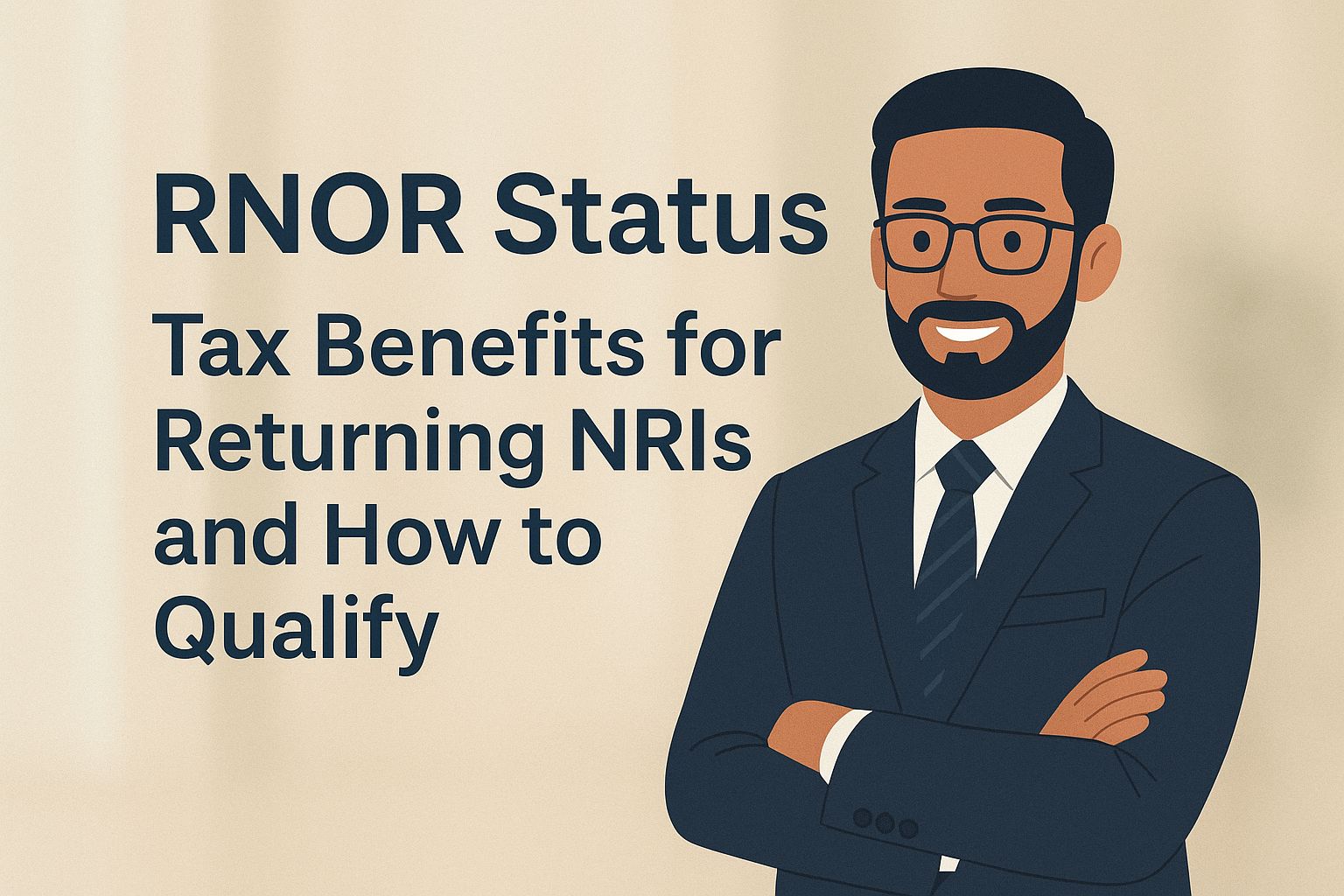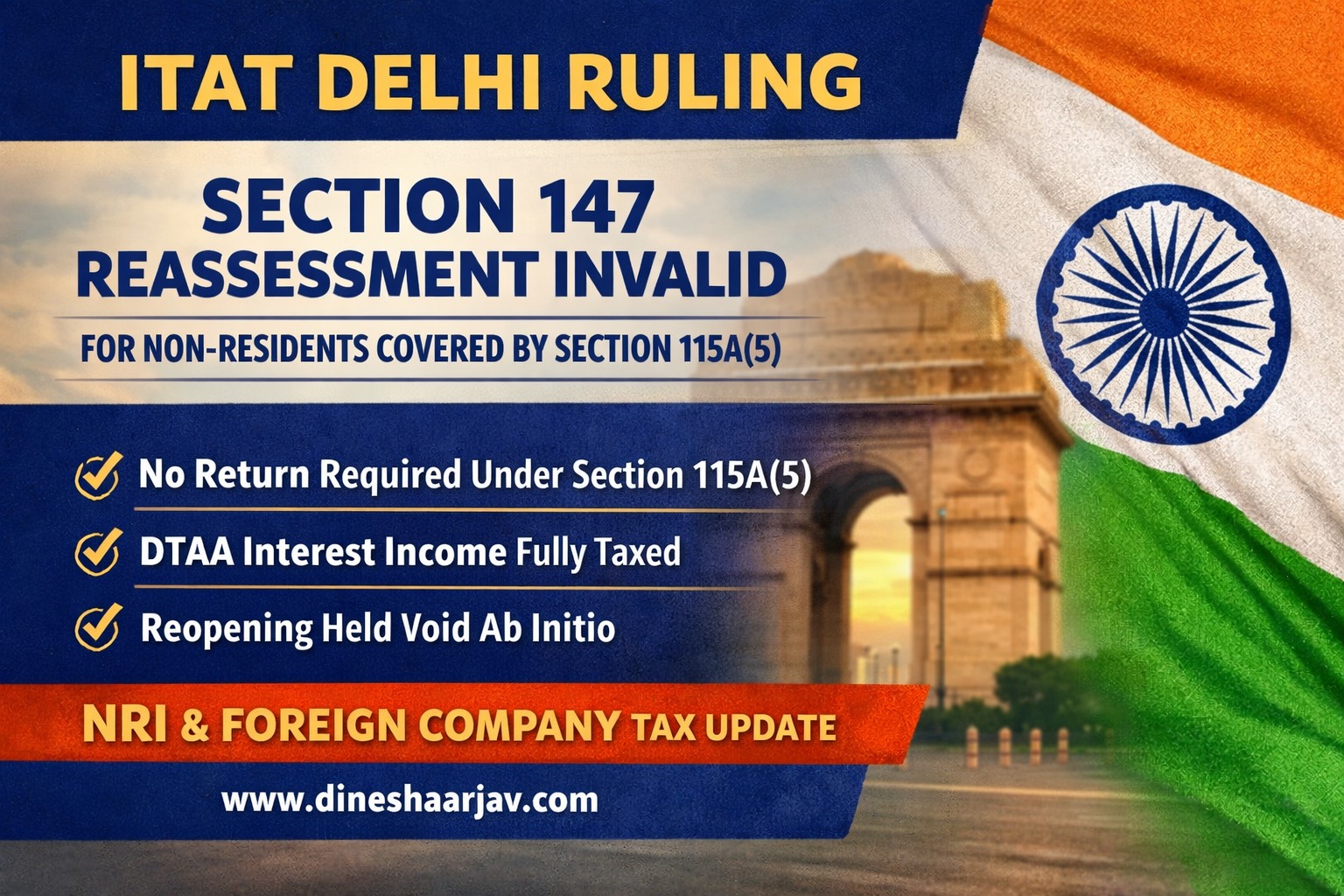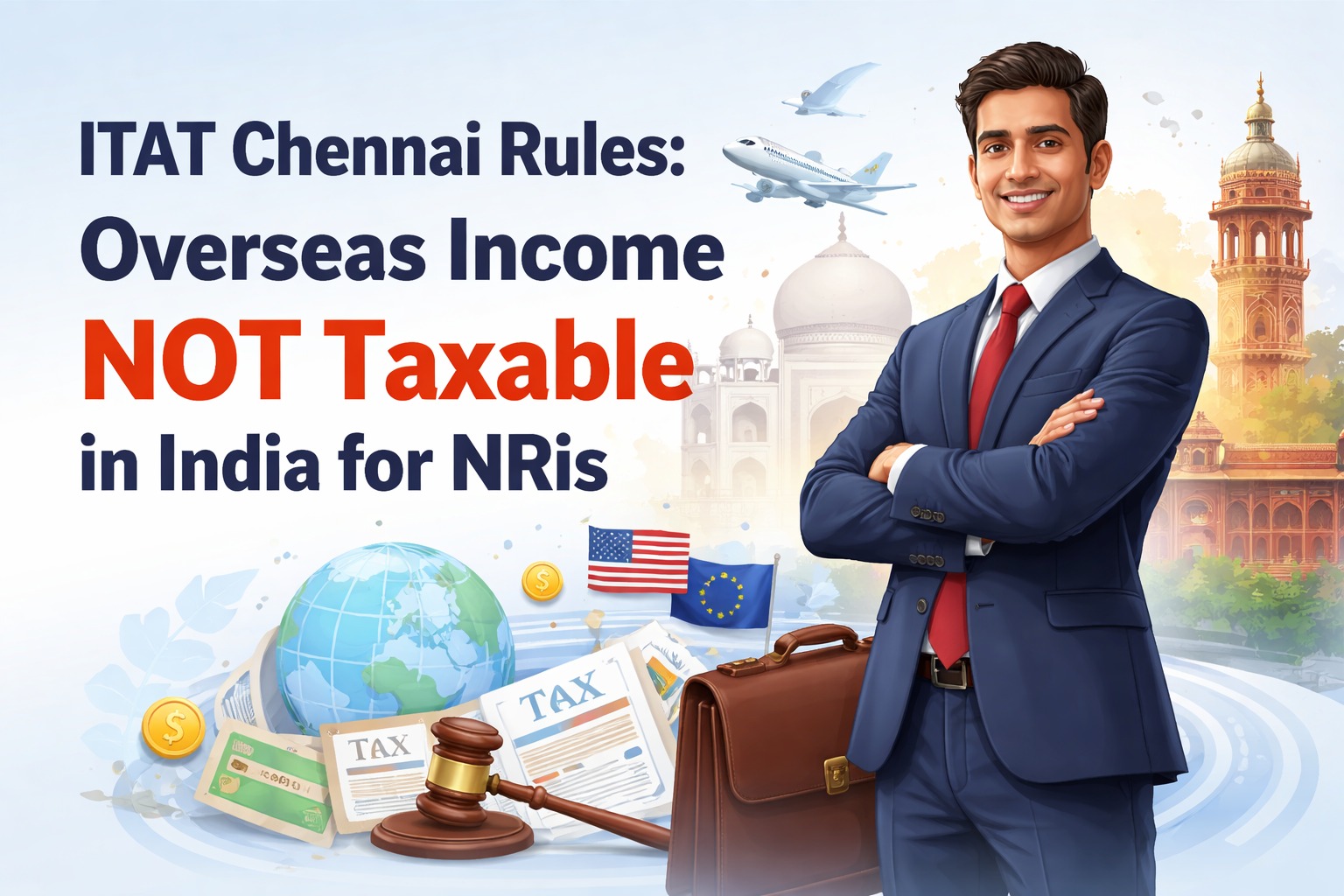 WhatsApp
WhatsApp
 Call Us
Call Us
 Email Us
Email Us
 Whatsapp Community
Whatsapp Community

When an NRI decides to return to India, one of the most overlooked yet powerful tax concepts is the RNOR status (Resident but Not Ordinarily Resident).
It acts as a tax-friendly bridge between being an NRI and becoming a full resident of India.
At Dinesh Aarjav & Associates, we regularly advise global Indians on how to use the RNOR period strategically — to minimize double taxation, plan repatriations, and ensure compliance under both the Income Tax Act and FEMA.
In this blog, we’ll explain everything about RNOR — meaning, eligibility, duration, tax implications, and how to plan your return to India efficiently.
The Resident but Not Ordinarily Resident status is a special category of residency under Indian tax law.
It’s designed for individuals returning to India after spending years abroad, offering them partial tax exemptions on their global income during a transition phase.
In simpler terms:
This hybrid category ensures that when you move back, your foreign income doesn’t immediately become taxable in India.
For global Indians coming back home, RNOR status offers three major advantages:
Essentially, RNOR = soft landing for returning NRIs.
You become an RNOR if you satisfy one of the following two key conditions:
If any one of these conditions is met — and you otherwise qualify as a resident for the current year — you’re classified as Resident but Not Ordinarily Resident (RNOR).
Additional Points to Note:
Under the Finance Act, 2020, if your Indian income (excluding foreign sources) exceeds ₹15 lakh, special rules may apply.
Certain individuals — particularly those of Indian origin who frequently visit India — should carefully evaluate the 120-day rule and its impact on residency.
Tip: Always maintain a detailed record of your travel dates and foreign income sources. A single day can change your residency status.
| Category | Tax on Indian Income | Tax on Foreign Income | Key Benefit |
| NRI | Taxed in India | Not taxed in India | Full exemption on foreign income |
| RNOR | Taxed in India | Not taxed (unless controlled from India) | Partial tax relief for 2–3 years |
| Resident (Ordinary) | Taxed in India | Taxed in India | No exemption |
RNOR provides the best of both worlds — you are a resident (so you can invest freely in India), but you still enjoy most of the tax exemptions available to NRIs.
The RNOR benefit generally lasts for up to two or three financial years after you return to India — depending on how long you stayed abroad before that.
However, this period is not fixed for everyone. The longer you were an NRI, the longer you can typically enjoy RNOR benefits. Once you meet the “ordinary resident” conditions, global income becomes taxable.
Example:
Suppose you were an NRI for 15 years and return in FY 2025-26. You may continue to qualify as RNOR until FY 2027-28, after which you’ll become a full resident.
1. Taxable Income in India
All Indian-source income such as:
…will be taxable as per the applicable income-tax slabs.
2. Non-Taxable Foreign Income
Income earned outside India will remain tax-free, unless:
This means your overseas salary, dividends, rental income, or capital gains remain untaxed during the RNOR phase.
3. Bank Accounts & Investments
At Dinesh Aarjav & Associates, we assist returning NRIs with complete tax residency and NRI tax planning, including:
The Finance Act, 2020 significantly altered how RNOR eligibility is determined:
Therefore, every returning Indian should get their residential status professionally reviewed each year.
Q1. How long can I enjoy RNOR status?
Generally up to 2–3 years, depending on your prior NRI period.
Q2. Do I need to declare foreign income while RNOR?
You don’t need to pay Indian tax on foreign income unless it’s received or controlled from India. But disclosure may be needed in your Indian return for compliance.
Q3. Is RNOR automatically granted?
No. It depends on your physical presence and past NRI years. You must evaluate and claim it correctly in your ITR.
Q4. Can I maintain NRE accounts as RNOR?
Yes, NRE/FCNR deposits can continue during RNOR and remain tax-free until maturity.
Q5. Should I file Indian tax returns as RNOR?
Yes, if you have taxable Indian income (rent, interest, etc.), you must file an Indian ITR, selecting “Resident but Not Ordinarily Resident” as your status.
The RNOR status is a powerful but time-sensitive opportunity for NRI returning to India. It allows you to:
At Dinesh Aarjav & Associates, we help NRIs across the US, UK, UAE, Singapore, and Australia navigate this transition seamlessly — combining tax planning, FEMA compliance, and cross-border structuring.
If you’re planning to move back to India, reach out to our team for a personalized RNOR eligibility review and return-to-India tax strategy.







Stay in the loop, subscribe to our newsletter and unlock a world of exclusive updates, insights, and offers delivered straight to your inbox.